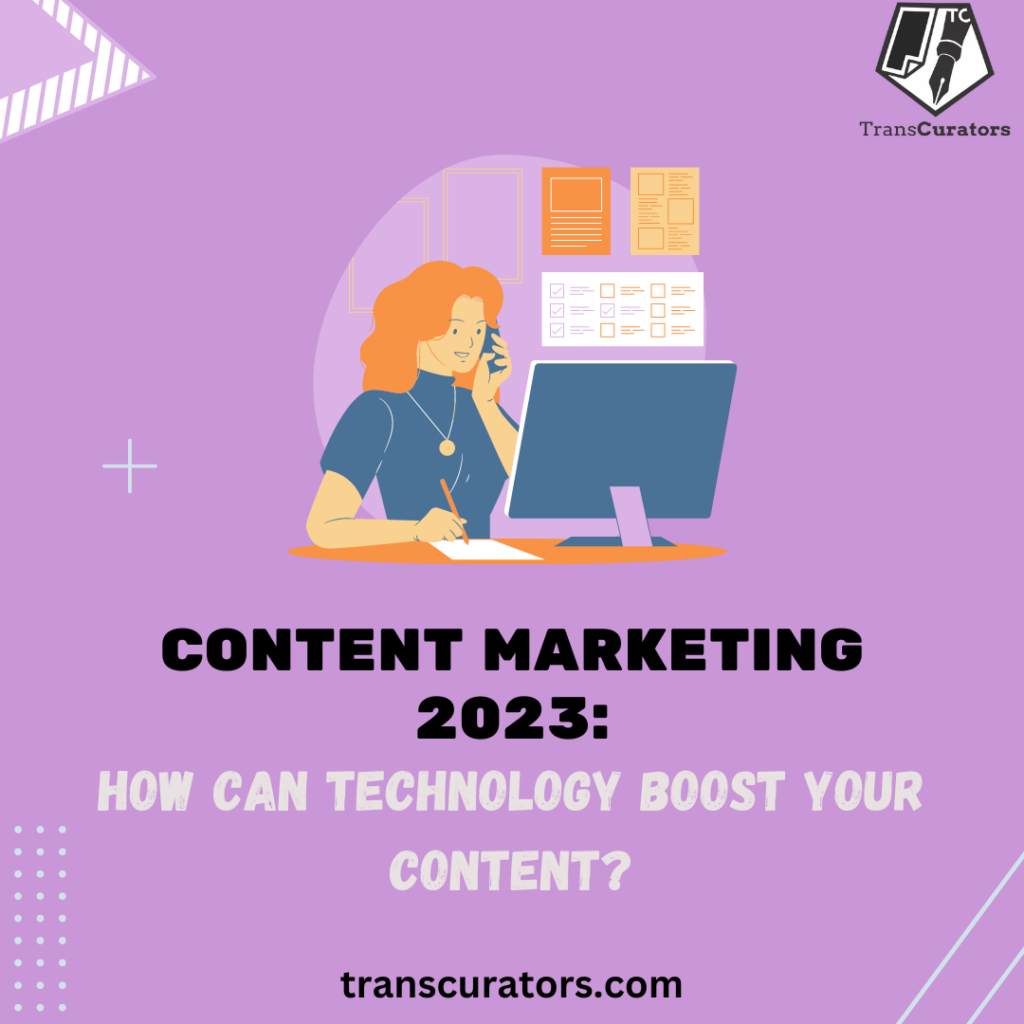Wondering what’s in store for Content Marketing in 2023? From the rapid technological transformations to the ever-evolving customer needs, it has become imperative to stay on top of the trends. The content marketing industry is not just about publishing written text on a website; it is also about creating content that appeals to your target audience so that they will find you through inbound marketing rather than outbound marketing. By creating valuable, relevant, and consistent content, businesses can attract and engage their target audience, build trust, and ultimately drive profitable customer action.
However, with the rapid growth in technologies, the content marketing industry is sure to be impacted. And due to the immense need and importance of Content marketing, it has been estimated that 73% of B2B marketers and 70% of B2C marketers use content marketing as part of their overall marketing strategy. As a result of which, it is necessary to be aware of how it is going to progress in the year 2023.
Before diving into the details of the Content Marketing industry of 2023, let’s understand how this concept has helped brands in increasing their sales over the years.
The Contribution of Content Marketing to Increasing Sales
- There is no doubt that content marketing plays a vital role in the growth and development of your brand. From pursuing potential customers to becoming purchasing consumers, content marketing can do wonders. By answering your audience’s questions and developing relationships, content marketing assists you in building trust, converting more leads, and developing relationships. As customers expect high-quality, consistent content from their favourite brands, standard content no longer suffices.
- By consistently creating and delivering relevant, valuable, and high-quality content, businesses can establish a strong relationship with their target audience and ultimately drive sales.
- Content Marketing helps the brand in a number of ways. From Educating and informing prospects about the products/services offered to Nurturing leads and guiding them down the sales funnel, it is a viable tool. Furthermore, it also Improves search engine visibility, website traffic and lead generation and contributes to driving purchases through targeted and personalized content. To reap these benefits consistently, it is imperative that you stay in alignment with any technological advancements and incorporate them into your content marketing strategy to derive the best results.
- Read on to find out more about the trends in content marketing in 2023.
Technology in Content Marketing-
1.AI enabled content
Artificial Intelligence (AI) has the potential to revolutionize content marketing in a number of ways. It can help in automating content creation through data analysis and predictive algorithms and personalize content delivery based on audience behavior and preferences. It further enhances content optimization for search engines and voice search. It also helps you to streamline content distribution and promotion. By leveraging AI, businesses can create more effective, efficient, and personalized content, reach their target audience more effectively, and achieve their marketing goals. However, it is important for businesses to use AI responsibly and ethically, taking into account privacy and data protection regulations.
2.Machine Learning
It has been estimated by Gartner that by the year 2025, a majority of the B2B organizations are sure to drive sales with the help of Machine Learning and AI. Marketing content is becoming increasingly dependent on machine learning since it helps marketers determine what consumers like and dislike. Additionally, it allows marketers to create content that provides a higher return on investment and generates more conversions. It is safe to admit that AI will take over more and more tasks from marketers in the future due to the limitless potential of machine learning in content marketing.
3.Natural language processing technology
Computers can be taught to recognize the natural sounds of human language with the help of Natural Language Processing (NLP). In natural language processing, we not only study individual words, but also learn how their meaning changes as we contextualize them. In today’s world, people communicate with chatbots, smart speakers, or Apple’s virtual assistant using Natural Language Processing (NLP). Content marketing technologies have made it possible to recognize handwriting, sort messages, convert speech to text, and check spelling. As a result of which the future of content marketing will be driven by NLP.
4.Interactive and Immersive technologies
By incorporating these technologies into their content marketing strategy, businesses can create more engaging and memorable content, reach their target audience more effectively, and achieve their marketing goals. However, it is important for businesses to consider the technical requirements and cost of implementation when incorporating these technologies. Interactive and immersive technologies like AR and VR hold the power to transform the entire content marketing industry. From enhancing the storytelling aspect of marketing and advertising to attracting and retaining the attention of the audience to differentiating the brand from competitors with unique and innovative experiences, these technologies play a vital role.
5.Chatbots
The concept of content marketing is not limited to uploading blogs or generating visual content, it is also about reaching your target audience and gathering their opinion. In this context, Chatbots can help. For real time customer engagement and support, Chatbots can transform your relationship with the customers.
Conclusion
In 2023, it is expected that content marketing will continue to evolve and play a crucial role in marketing strategies. Personalized and individualized experiences will become increasingly important in content marketing as consumers expect brands to cater to their specific needs and preferences. Artificial intelligence (AI) and machine learning (ML) will play a key role in automating and optimizing personalized content delivery.
Furthermore, with the changing technology the needs and values of your customer also changes, as a result of which you have to keep track of these trends and adapt to your consumer’s preferences accordingly to better position and achieve your marketing goals. To stay ahead of the curve, one needs to be open to learning new things so that they can attract and engage their target audience, boost conversions and sales, build trust, and ultimately drive profitable customer action.
